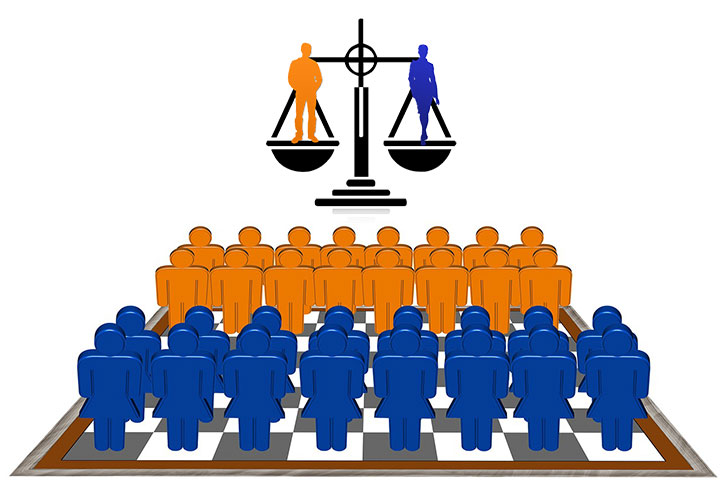


ChessBase 17 - Mega package - Edition 2024
It is the program of choice for anyone who loves the game and wants to know more about it. Start your personal success story with ChessBase and enjoy the game even more.
A famous and often-cited 2009 publication by Bilalic, Smallbone, McLeod & Gobet (PDF) has been a favourite study for many people, including the media, like "Der Spiegel". Their publication implied that men are rated higher in chess simply and only because more men are playing tournament chess than women do; their approach was consequently named the "participation rate approach". This paper was most prominently criticized by a 2014 publication by Howard — who concluded that the gap in performance was in fact not explicable by the number of players, but rather that there had to be a difference in brain performance. His approach is therefore called the "Natural talent hypothesis". Who is right?
A recent analysis by Bruno Wiesend, "Questioning Gender Studies on Chess" (PDF), sheds new light on the 2009 participation rate approach — and, in fact, discards it as unsound.
The new publication shows in detail which statistical approximations were made by Bilalic — and why these approximations were methodologically unjustified and do not hold under the given circumstances.
If the latest paper, which makes use of quite involved and advanced statistical methods like the Monte Carlo method, is indeed correct, it proves that the point gap between male and female performance can in fact not at all be explained through participation rates — at least not in the way Bilalic has done this in 2009. It furthermore then would be true that stronger players also are not stronger because they play more games — as had been implied by earlier studies — but rather that stronger players reach their performance limit earlier; this may mean that they seem to only play more games because they like what they are doing — and it supports the natural talent hypothesis.

All previous publication heavily drew on FIDE and other international chess databases. But what do these really tell us about the natural talent hypothesis? They generally do not provide much data on players before the age of 10 years. The reason is that often players only then start playing in FIDE rated chess tournaments. However, it is within these early years that chess talent can still — to a point — be created or bolstered through intensive practice, as seen in the case of the Polgar sisters, who were intensively trained from the age of 4, with Judit Polgar eventually becoming the strongest female player of all time.
The latest publication raises one more interesting fact: it seems that female players drop out earlier from tournament chess than males do, on average. The authors ask why at all this fact seems to emerge, and speculate whether this is due to chess being a war game and thus more attractive to males. Whatever the reason, this early drop-out rate could be responsible for females lagging behind at an early and critical brain development time — making it harder or even impossible to close the gap later.
Download (PDF) "Questioning Gender Studies on Chess"

Born in 1955 from Munich, Bruno Wiesend earned his doctorate in pharmaceutical chemistry and became interested in chess in 1980 on the occasion of the candidates final between Hübner and Korchnoi. His peak FIDE rating was 2153 in 2005, and he is currently no longer active as a player, but has nevertheless remained faithful to chess and has been engaged in chess research.
| Advertising |